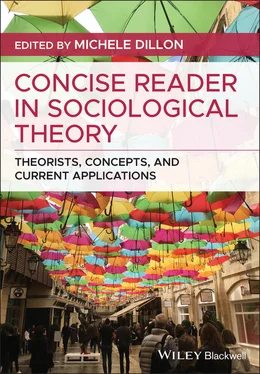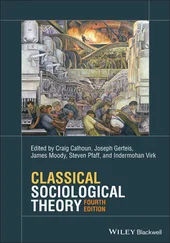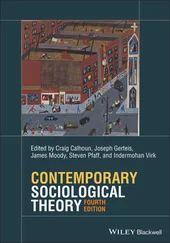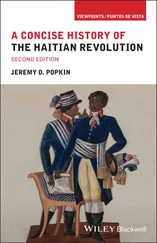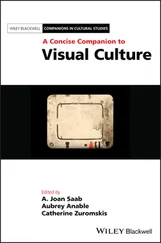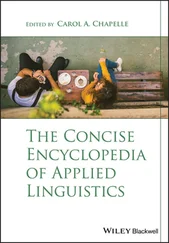If now in considering the course of history we detach the ideas of the ruling class from the ruling class itself and attribute to them an independent existence, if we confine ourselves to saying that these or those ideas were dominant, without bothering ourselves about the conditions of production and the producers of these ideas, if we then ignore the individuals and world conditions which are the source of the ideas, we can say, for instance, that during the time that the aristocracy was dominant, the concepts honour, loyalty, etc., were dominant, during the dominance of the bourgeoisie the concepts freedom, equality, etc. The ruling class itself on the whole imagines this to be so. This conception of history, which is common to all historians, particularly since the eighteenth century, will necessarily come up against the phenomenon that increasingly abstract ideas hold sway, i.e. ideas which increasingly take on the form of universality. For each new class which puts itself in the place of one ruling before it, is compelled, merely in order to carry through its aim, to represent its interest as the common interest of all the members of society, put in an ideal form; it will give its ideas the form of universality, and represent them as the only rational, universally valid ones.
1 11 franc equals 8 Prussian silver groschen. (In the 1891 edition the word “mark” is used everywhere instead of “franc”. – Ed.
2 2The words “for a particular labour time” are omitted in the 1891 edition. – Ed.
3 3The 1891 edition has “capitalist” here instead of “bourgeois”. – Ed.
4 4The 1891 edition has “capitalist” here and the words “it seems” are added. – Ed.
5 5In the 1891 edition here follows the passage: “But this is merely the appearance. In reality what they sell to the capitalist for money is their labour power. The capitalist buys this labour power for a day, a week, a month, etc. And after he has bought it, he uses it by having the workers work for the stipulated time.” – Ed.
6 6The 1891 edition has “the capitalist has bought their labour power” instead of “the bourgeois has bought their labour power”. – Ed.
7 7The 1891 edition has “use of labour power” instead of “labour”. – Ed.
8 8The 1891 edition has “labour power” instead of “labour”. – Ed.
9 9The 1891 edition has “labour power” instead of “labour”. – Ed.
10 10The 1891 edition has “labour power” instead of “labour”. – Ed.
11 11The 1891 edition has after this: “the exercise of labour power”. – Ed.
12 12The 1891 edition has “labour power” instead of “labour”. – Ed.
13 13The 1891 edition has “labour power” instead of “labour”. – Ed.
14 14The 1891 edition has “labour power” instead of “labour”. – Ed.
15 15The 1891 edition has “labour power” instead of “labour”. – Ed.
16 16The 1891 edition has “labour power” instead of “labour”. – Ed.
17 17The 1891 edition has “labour power” instead of “labour”. – Ed.
18 18The 1891 edition has “not to this or that capitalist but to the capitalist class” instead of “not to this or that bourgeois but to the bourgeois class”. – Ed.
19 19The 1891 edition has “capitalist class” instead of “bourgeois class”. – Ed.
20 20The 1891 edition has “the buyers of labour power” and “the sellers of labour power” instead of “the buyers of labour” and “the sellers of labour”. – Ed.
21 21The 1891 edition has “labour power” instead of “labour”. – Ed.
22 22The 1891 edition has “labour power” instead of “labour”. – Ed.
23 23In the 1891 edition the words “and capable of working” are added here. – Ed.
24 24The 1891 edition has here and in the next paragraph “simple labour power” instead of “simple labour”. – Ed.
25 25The 1891 edition has “not only act on nature but also on one another” instead of “enter into relation not only with nature”. – Ed.
26 26The 1891 edition has “action on nature” instead of “relation with nature”. – Ed.
27 27The 1891 edition has “labour power” instead of “labour”. – Ed.
28 28The 1891 edition has “workers” instead of “labour”. – Ed.
29 1The letters and words enclosed in square brackets in this sentence are indecipherable as they are covered by an inkspot.– Ed.
30 2Here and occasionally later Marx uses the French word ouvrier. – Ed.
31 3Cf. Adam Smith, Wealth of Nations, Vol. I, p. 230 (Garnier, t. II, p. 162). – Ed.
32 4Unlike the quotations from a number of other French writers such as Constantin Pecqueur and Eugeˋne Buret, which Marx gives in French in this work, the excerpts from J.B. Say’s book are given in his German translation.
33 5From this page of the manuscript quotations from Adam Smith’s book (in the French translation), which Marx cited so far sometimes in French and sometimes in German, are, as a rule, given in German. … The corresponding pages of the English edition are substituted for the French by the editor and Marx’s references are given in square brackets.
34 6Marx uses the English word “stock”. – Ed.
35 7The text published in small type here and below is not an exact quotation from Smith but a summary of the corresponding passages from his work. Such passages are subsequently given in small type but without quotation marks.
36 8In the manuscript: “is”.– Ed.
37 9In the manuscript one word cannot be deciphered. – Ed.
CHAPTER TWO EMILE DURKHEIM
CHAPTER MENU
2A The Rules of Sociological Method (Emile Durkheim)
What is a Social Fact?
II
2B Suicide: A Study in Sociology (Emile Durkheim)
Emile Durkheim, who was born in France in 1858 and died in 1917, provides sociologists with a clear blueprint of how to conduct systematic sociological analysis. If inequality and alienation are the concepts at the core of Karl Marx’s theory of modern capitalism/industrial society, their approximate opposites – interdependence and integration – are the core concepts in Durkheim’s analysis of modern society. A preoccupying question for Durkheim is: What holds society together – especially modern society which, unlike traditional society that is characterized largely by homogeneity or sameness (sameness of social backgrounds, experiences, values), is instead characterized by multiple points of fracture based on the differences among and between individuals, groups and institutions? Like Mark, Durkheim focused on the transformation wrought by modern industrialization and, in particular, on the specialized occupational division of labor that emerged with factory production, and the transition from a mostly rural, agricultural‐based social structure to the density and impersonality of urban life (in Division of Labour , not included). Unlike Marx, however, Durkheim saw the structuring of the division of labor (whether of occupations; between rural and urban communities; or among various institutions such as the family, school, church, work) as functional to the organization of social relationships and the crafting and maintenance of social cohesion. The interdependence that such specialization of function requires means that individuals (and diverse groups and institutions) have to engage in social interaction with others (not like them) and are necessarily reliant on and tied to these (specialized) others for their effective functioning and well‐being. A plumber needs to work with a carpenter and a roofer if a house is to be built properly and not leak, that is, to be functional. Similarly, parliament makes laws but another specialized branch of government, the judiciary, oversees them to ensure that they are aligned with the constitution, and enforced. Each occupational specialization and each branch of government has its own function and it is only through working together (regardless of how they feel about this) – acting on their functional interdependence – can the value of the whole be realized. For Durkheim, these structures are functional to the everyday workings of society and, additionally, are functional to social integration or cohesion. This is especially significant in modern urban society, characterized as it is by an enormous amount of occupational, political, cultural, and ethnic diversity. What knits people together – integrates them into society – is not some shared family or social background (as would be typical in more traditional, largely rural communities) but the structure of interdependent relations and the organic ties they necessarily require and produce.
Читать дальше
